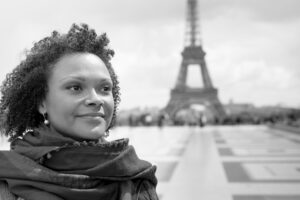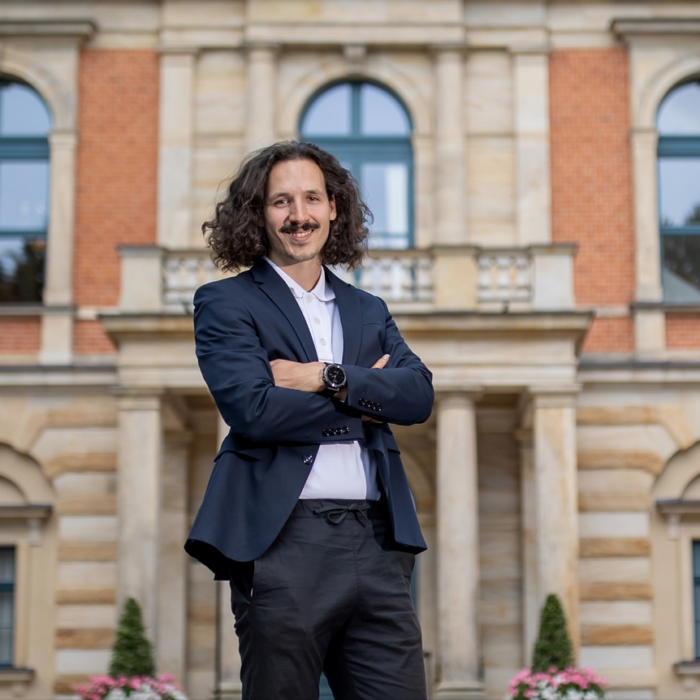
Q & A: Soprano Rachel Redmond on Her Forthcoming Role as Aminta in Vivaldi’s ‘L’Olimpiade’
By Alan Neilson(Photo: Christopher Wallace)
In 2021, OperaWire reviewed a splendid concert presentation of Handel’s “Ariodante” at the Göttingen Handel Festival. With a strong cast, which included star names such as Marie Lys and Emily Fons. Quality performances were certainly expected, and they did not disappoint. However, it was soprano Rachel Redmond, whom I had previously never heard sing, in the role of Dalinda, that really surprised. With her attractive, versatile voice, she successfully developed her character in a lively, engaging manner, in which her “fabulous complex coloratura display, full of leaps and heavily accented vocal line,” captured her character’s strong emotions, while in her confession of love, “her voice danced lightly and easily across the melodic line replete with pleasing ornamentations,” which successfully caught the joy of falling in love.
Currently in rehearsals with Irish National Opera for a production of Vivaldi’s “L’Olimpiade,” which will shortly be touring the country, OperaWire took the opportunity to meet up with Redmond to find out more about her career and her opinions on an opera that is currently re-establishing itself as one of Vivaldi’s most popular works.
OperaWire: What was your pathway into a career as an opera singer?
Rachel Redmond: Both my parents played the classical guitar, so there was a lot of music around the house when I was growing up, although it was mainly pop music from the 60s and 70s. I was in choirs while at school and attended my first classical concert when I was about six or seven years old with my best friend and her parents, who really loved classical music. It was “The Last Night of the Proms” in Glasgow. I remember all the balloons falling down and thinking it was really cool.
I then auditioned and was accepted for the junior chorus of the Scottish National Orchestra, and I started rehearsals with them on my eighth birthday. Although I really enjoyed it, at that stage, I had no idea that you could actually do this as a job. When I was about 14, I saw an advert in a concert program for a specialist music school just outside Glasgow. I applied and was accepted, and this led me on to the Royal Scottish Academy of Music and Drama and then on to the Guildhall School of Music and Drama in London for my postgraduate qualification.
OW: How did you get your first opportunities to sing professionally?
RR: When I finished my formal education and training, it was a time when nobody wanted sopranos who sounded like little boys. Nobody was interested in me, and I was not sure what to do. I, therefore, started working and teaching music in primary schools in Scotland. While doing this, I decided to audition for the chorus at Glyndebourne. It was a disaster. I was singing a Handel aria, and it was far too high for me, and when I got to the da capo, my voice just gave way, so I stopped, apologized and just left. They called me and offered me a place. I was convinced that they must have contacted the wrong Rachel.
As well as the chorus, they provided me with opportunities in some small roles and understudy parts. It was there that I met William Christie. We were performing Purcell’s “The Fairy Queen,” and he was conducting. One day, during rehearsals, we had a good chat over lunch about Scotland, which he loves. Then the following year, I auditioned for Jardin des Voix, and he remembered me and offered me a place, and my solo career started.
OW: You are almost exclusively a baroque specialist. Why?
RR: To be honest, I don’t know. I think baroque musicians form a small community, so that when people hear you, it is quite easy for them to remember you, which means you become known in that circle. Also, I have a voice that is suited to the baroque; it is a clear voice with little vibrato. And, of course, I love singing it.
But I do other work as well; it is just that I get asked less frequently.
OW: How would you describe your voice.
RR: I have a very clear, agile voice; it is able to move very quickly. I love singing fast, challenging coloraturas; in fact, the faster, the better. For me, the clarity in the voice also helps with the acting side because I feel as if I am speaking to someone; it has a natural speaking tone, which I think adds to the drama.
On the negative side, there are certain languages that I feel more comfortable singing. I speak English and French, so I feel more confident when singing in these languages. I also enjoy singing in Italian, but that involves more work because I have to translate every single word, so when I am singing, I am thinking about their meaning, which I don’t have to do with English and French. So, it takes more effort to prepare myself for the performance.
OW: What do you like most about being an opera singer?
RR: I like meeting and working with different people all the time. There is always someone new with new energy to bounce off. Also, I like to see new parts of the world, as the job entails a lot of travel. And I get to listen to music all the time.
I tend to restrict myself to one or two operas a year. The rest of the time I sing in concerts because I have a young child and I don’t want to be away from her for too long.
OW: You are about to play Aminta in Vivaldi’s opera “L’Olimpiade” on a nationwide tour with Irish National Opera. What are your initial impressions of the piece?
RR: It has a complicated narrative, and so for this production we have cut quite a lot of the extraneous material, which has simplified it a little. It is set against the background of the Olympics in Ancient Greece, but there is not much in the way of sporting events going on. It is more about love triangles, estranged children and potential murders.
The score is fabulous; there are so many great arias in it, and there is an amazing duet for the two lovers. It is full of Vivaldi-esque dissonances. It really is exquisite! The recitatives are very different from what I am used to. They go all over the place; it made me think Vivaldi was trying to catch out the tuner to see if he had checked at the keyboard properly.
OW: Can you tell us something about the role and its challenges?
RR: It is a nicely written role with three arias for me to sing, which suit my voice. I don’t find it a difficult role; the only real challenge is the amount of coloratura I have to sing. I do love singing coloratura, but, at times, Vivaldi has literally left me no space to breathe. It is a challenge, and I like it! I am quietly confident, but who knows what happens on the night? The conductor may take it a little faster.
This is the first time I will be playing a trouser role, which will certainly be a bit of a challenge. Vivaldi was one of the few composers who wrote a trouser role for a soprano. It looks like it should be a bit of fun. I see Aminta as a playful character. He is the director within the opera and the leader of the troupe.
Aminta is definitely a likeable character. He finds the baby Lucida after being abandoned by his father, who wanted him dead. Aminta brings him to the court of the Cretan king, who, having just lost his own son, raises him as a prince. I am, therefore, like a father figure.
In this production, I become an advisor to all the young ones, trying to guide them away from making stupid decisions, but, of course, no one takes any notice. When Lucida gets into trouble for cheating in the Olympics and attacking his father’s guards, I have to try to find a solution. I suppose that I am the voice of reason.
OW: What can the audience expect from this production?
RR: The idea behind the production is that we are a theatre group about to do a new show. At the start, we are given costumes and roles, and then we begin the play. I am the director. Everything, however, starts to go wrong. The play should be about the Olympics, but everyone starts to fall in and out of love, and the director’s idea goes out of the window. I am constantly trying to get the play back on track while the cast is throwing their costumes away or getting annoyed and storming off the stage. It is almost anarchy. By the end, however, we are sort of back to where we should be. It is quite funny, actually.
There are some period costumes, depending on whether you are in character or not. My costume, however, is britches and a jockey’s jacket, and the whole cast wears boxing boots.
OW: How do you see your career developing in the future?
RR: I am very happy with the way things are at the moment. I would like to expand my repertoire to include some more Mozart, maybe a Zerlina or a Despina. Maybe I would like to do some serious roles, as I have not done many in the past. My dream role is Sophie in “Der Rosenkavalier.” There are also roles in Verdi like Nanetta, which would suit my voice.
If I had the opportunity to sing anywhere in the world, it would have to be somewhere with a beach; Rio would be perfect.



